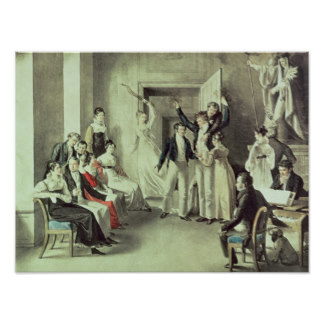For the penultimate session of our annual series (this Wednesday, 4:30–6:00 in Logan 801), we are thoroughly honored to welcome special guest Su Yin Mak, Associate Professor of Music Theory at the Chinese University of Hong Kong. Professor Mak will present a paper on “Schillerian Aesthetic Play in Schubert’s String Quartet in A minor, D. 804” (draft downloadable here), about which she writes:
Schubert’s String Quartet in A minor, D. 804 has long been associated with memory and nostalgia, not least because of the citation in the third-movement Menuetto of the opening figure from ‘Strophe aus Schillers Die Götter Griechenlands’ (D. 677), which sets an explicitly elegiac text. That Friedrich Schiller was an important author for Schubert is well-documented, and in my earlier work on lyricism in Schubert I have argued a close correspondence between Schubert’s paratactic style and Schiller’s paradigm of the elegy. Currently I am working on a paper that further considers ways in which Schiller’s theory of the aesthetic imagination may also inform our understanding of Schubert’s discourse. In notebook entries and letters written around the time of the quartet’s composition, Schubert’s remarks on the imagination’s power to transcend and beautify miserable reality suggest familiarity with, and sympathy for, Schiller’s view of the imagination in On the Aesthetic Education of Man in a Series of Letters. In particular, Schiller’s notion of play-drive (Spieltrieb), which mediates between the sensuousness of intuitions and desires (Stofftrieb) and the urge to impose order on feelings and experiences (Formtrieb), finds resonance with Schubert’s constructions of subjectivity in the quartet. For this workshop presentation, I propose a reading of the third movement that draws upon both these tropes taken from Schiller: the dialectical opposition between ideal and actuality in his conception of the elegy, and the negotiation between materiality and form in his conception of the imagination.
